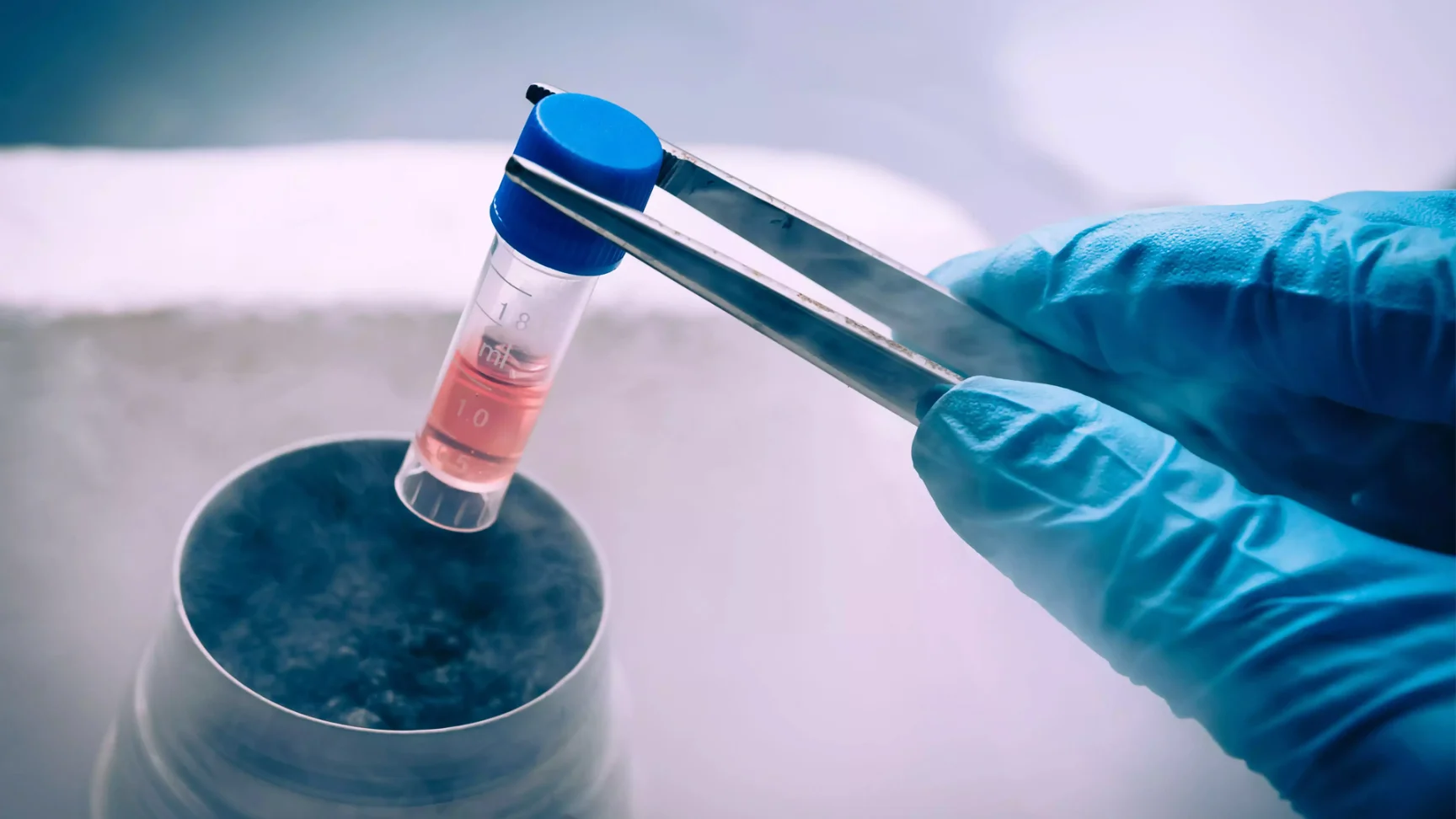Egg freezing or oocyte cryopreservation

Egg freezing, or oocyte cryopreservation, is a method used to preserve a woman’s fertility by retrieving, freezing, and storing her eggs for future use. It allows women to delay pregnancy due to medical, personal, or professional reasons, without compromising the quality of their eggs.
The process typically begins with hormonal stimulation to encourage the ovaries to produce multiple mature eggs. These eggs are then retrieved through a minor surgical procedure and immediately frozen using a technique called vitrification, which prevents ice crystal formation and helps maintain egg integrity during storage. The frozen eggs can later be thawed, fertilized with sperm, and implanted through in vitro fertilization (IVF) when the woman is ready to conceive.
Egg freezing is particularly recommended for women undergoing treatments that may affect fertility, such as chemotherapy or radiation, as well as for those with a family history of early menopause. It is also an option for women who wish to postpone childbearing for non-medical reasons.
Success rates depend on factors like the woman’s age at the time of freezing and the number and quality of eggs retrieved. The earlier the eggs are frozen, ideally before the mid-30s, the higher the chances of a successful pregnancy later.
While egg freezing offers reproductive autonomy and flexibility, it is important to undergo a thorough medical evaluation and counseling to understand the process, limitations, and future implications.
